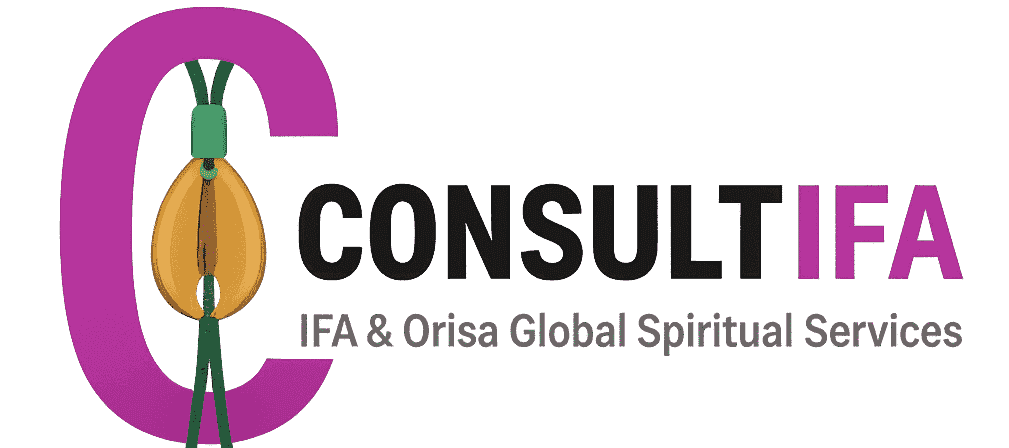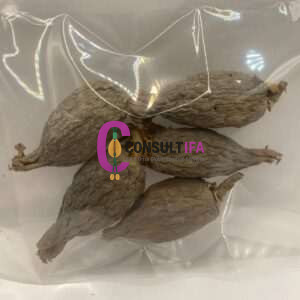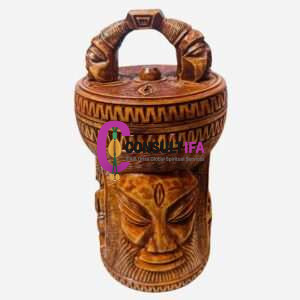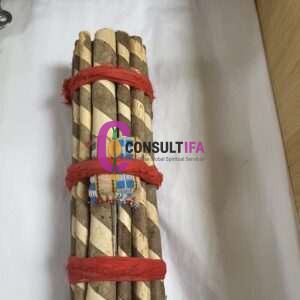African Creation Myths are diverse stories from different cultures that explain how the world began, focusing on nature and supernatural force, playing a vital role in highlighting the continent’s rich cultural diversity and heritage. These stories, which have been shared through generations, provide a window into the varied traditions and societies that exist across Africa. These myths provide insight into the spiritual beliefs and values of different African communities, illustrating the close bond between humans, nature, and the divine. Examples include the Fulani’s creation myth from a drop of milk and the Yoruba’s tales of cosmic eggs and divine craftsmen. These stories highlight a deep understanding of existence, stressing the importance of harmony with nature and community unity.
Key Takeaways
- By exploring various African mythologies, readers gain insights into how different communities perceive the beginning of life, the universe, and the intricate relationships between humans, nature, and the divine.
- The Bushmen creation narrative, along with other stories, highlights the importance of animals and natural elements in African myths, showing a deep reverence for the natural world.
- Understanding these creation myths provides valuable lessons on the interconnectedness of life and the environment, encouraging a respect for nature that is deeply rooted in African cultures.
- Comparative analysis of African myths with those from other parts of the world reveals universal themes of creation, existence, and morality, yet emphasizes the unique perspectives and contributions of African narratives to global mythology.
- The cultural impact of these myths extends beyond mere stories; they are fundamental to shaping values, ethics, and social norms within African societies, illustrating the power of myth in human culture.
Exploring African Mythologies
Creation Myths
African mythologies are a treasure trove of creation stories. They explain how the world and everything in it came to be. These myths often involve spirits and deities molding life from materials like clay or commanding the existence of mountains, rivers, and animals into being.
One popular narrative tells of a spider weaving the world into existence. This story highlights the importance of creativity and connection. Another tale speaks of a giant leopard that shaped the land with its paws, emphasizing strength and determination.
Storytelling Tradition
Storytelling is vital in African cultures. It’s more than entertainment; it’s a way to preserve history, morals, and social norms. Elders pass these tales down through generations, ensuring that the wisdom embedded within them survives.
These narratives often feature animals and natural elements, teaching respect for nature and all living things. They also underscore the value of friendship, cooperation, and respect among community members.
Cultural Heritage
African creation myths are an integral part of the continent’s cultural heritage. They offer insights into how different communities view the world around them and their place within it.
For instance, some myths explain the origins of specific landmarks or natural phenomena, linking people closely to their environment. Others may describe the founding of a tribe or kingdom, instilling a sense of pride and belonging among its members.
Moral Lessons
Beyond explaining physical realities, these myths carry profound moral lessons. They teach about good versus evil, the importance of kindness and generosity, and the consequences of greed and selfishness.
Stories where a humble creature outsmarts a mightier one show that wisdom and wit can triumph over brute strength. Tales where harmony is restored after chaos remind us that balance and order are essential for prosperity.
Six Intriguing African Creation Stories
Mali Myth
The Bambara people of Mali tell a story where the world began with water and a giant seed. This seed split open to reveal the first beings and the creator god, Pemba, who descended on a spider’s thread.
Pemba introduced the concept of agriculture but made a mistake by planting a forbidden fruit. This act led to chaos but eventually taught humans about balance and responsibility.
Nigerian Tale
In Nigeria, the Yoruba people believe in a deity named Olorun, who rules over the heavens. Another god, Obatala, was tasked with creating the earth but got drunk on palm wine. Thus, his younger brother Oduduwa took over the task, creating land from a chaotic waterworld using sand and a five-toed chicken.
This story, the Yoruba Creation Myth, emphasizes creativity in adversity and highlights the importance of duty.
Congo Lore
The Kuba Creation Myth of D.R. Congo narrate how Mbombo, the white giant, vomited the sun, moon, stars, and then animals onto the earth. Afterward, he vomited three men and later showed them how to make fire.
Mbombo’s act symbolizes birth from pain, suggesting that creation often comes from discomfort or sacrifice.
Tanzanian Legend
Among Tanzania’s Chaga community, it is believed that God lowered a man down from the heavens by a cowhide rope. When he cut it out of anger for being sent alone, God sent him cattle as companions.
This myth underscores the bond between humans and nature, especially domestic animals, as essential for survival.
African-Cuban Narrative
Enslaved Africans in Cuba merged their traditional Yoruba beliefs with Catholicism to create Santería. In this belief system, Olodumare created everything through Orishas (deities). Each Orisha represents natural elements like rivers or mountains and offers guidance to followers.
This narrative illustrates resilience and adaptation by showing how displaced Africans preserved their beliefs under oppression.
Bushmen Creation Myth: The Tale of Cagn
The San people of Southern Africa have an important story about how the world began, focusing on Kaang, or Cagn, a god resembling a praying mantis. Kaang created the world and everything in it but also caused problems that his creations had to solve.
He, along with his family, stars in stories that explain nature, teach right from wrong, and tell how death came to be. These stories are key for the San, showing how everything is connected and teaching respect and harmony.
Insights into African Creation Beliefs
Spiritual Foundations
African creation myths often start with spiritual beings shaping the cosmos. These entities, beyond our understanding, crafted the universe with purpose and intention. They laid the groundwork for life, setting in motion the forces of nature and human existence.
In many traditions, a supreme being or a pantheon of gods worked in harmony to bring about creation. They used their divine powers to form the earth, sky, and all living creatures. This process wasn’t just physical but deeply spiritual, imbuing the world with sacred energy.
Gods and Spirits
The role of gods and spirits in African creation stories is crucial. They didn’t just create the world; they continue to influence it. Their presence is felt in every aspect of life, guiding people’s destinies and shaping their paths.
These deities are often seen as parents or ancestors, offering protection and wisdom. They require respect and veneration from humans, who perform rituals and ceremonies to honor them. This relationship highlights a profound connection between the spiritual realm and daily life.
Ancestral Wisdom
Ancestors hold a special place in African cosmology. They bridge the gap between the living and the divine, acting as intermediaries. Their guidance is sought for moral decisions and ethical conduct.
These ancestral figures also serve as keepers of tradition, passing down valuable lessons through generations. The stories they share teach about courage, humility, and respect for nature. Such tales are not just entertainment but vital teachings that mold character.
Moral Lessons
African creation myths are rich with moral lessons. They emphasize virtues like honesty, kindness, and community spirit. These stories illustrate how individual actions can affect others and the importance of living harmoniously within society.
Ethical conduct derived from these myths shapes personal behavior and societal norms. It fosters a sense of responsibility towards others and the environment. By following these principles, communities strive to maintain balance and order in their lives.
Understanding the Diversity of Myths
Global Comparisons
African creation myths, rich in diversity, offer unique perspectives when compared to stories from other cultures. These narratives often highlight a deep connection with nature and the universe.
In many cultures, creation myths serve as a foundation for understanding the world. African myths are no exception. They weave complex tales that mirror the continent’s vast ecosystems and cultural landscapes. Unlike some Western myths which focus on singular omnipotent beings, African stories frequently feature many children or entities contributing to creation. This illustrates a more communal approach to the origins of life.
Geographical Influences
The variety of African creation myths is significantly shaped by geography. Africa’s diverse landscapes–from deserts to rainforests–inspire different narratives about the world’s genesis.
In regions like the Sahara, myths often revolve around themes of survival and adaptation, reflecting harsh living conditions. Conversely, in lush areas such as West Africa, stories might focus on abundance and harmony with nature. This geographical diversity ensures that no two myths are entirely alike, each shaped by its environment’s unique challenges and blessings.
Social Contexts
The social fabric of African communities plays a crucial role in shaping their creation myths. These stories are not just about how the world came to be but also reflect societal values and norms.
For instance, matrilineal societies might have myths emphasizing the role of goddesses or female entities in creating life. In contrast, communities with strong warrior traditions may tell tales of gods overcoming chaos with strength and bravery. This shows how myths adapt to embody the ideals and aspirations of their people.
Oral Tradition
Oral tradition has been pivotal in preserving the diversity of African creation myths through generations. Despite colonization and external influences attempting to suppress indigenous narratives, these stories have survived.
Elders passing down tales to younger generations ensure that each story retains its uniqueness while adapting over time. This oral method allows for flexibility in storytelling, where details can be altered to suit contemporary contexts without losing core elements. It showcases resilience in keeping cultural heritage alive amidst change.
The Role of Nature in African Myths
Elemental Forces
In many African creation myths, elements like water, fire, earth, and air are not just parts of the world. They are living entities with spirits and intentions. Water, for instance, is often seen as the source of life. It nourishes the land and sustains all living beings. This reverence for water reflects the understanding of its vital role in survival and prosperity.
Fire, on the other hand, represents transformation and renewal. It can destroy but also purifies and prepares the ground for new growth. Earth is the mother that holds everything; it is where life begins and returns after death. Air breathes life into beings and carries voices and spirits.
Sacred Animals
Animals play a pivotal role in these stories too. They are not mere creatures but sacred beings with special powers. For example, the spider in some West African myths is a trickster and a creator, weaving the fabric of reality itself. Elephants are often revered for their wisdom and strength, embodying the power of nature itself.
These animals guide humans, offer insights, or even participate directly in the creation process. Their portrayal underscores a deep respect for animal life and an acknowledgment of their integral role in the ecosystem.
Environmental Ethics
African creation myths embed a profound message of harmony and respect for nature. They teach that humans are part of nature’s web, not above it. This perspective fosters a sense of responsibility towards preserving natural resources like rainforests, rivers, and wildlife.
The stories illustrate how every element in nature has a purpose and value. Rain brings water necessary for crops; plants provide food and medicine; animals contribute to ecological balance. This interconnectedness emphasizes that harming one part affects the whole system.
Human Origins in African Stories
Divine Creation
In many African myths, humans emerge as creations of divine entities. These stories often describe how the first man and woman were crafted from the earth or descended from the heavens. Their existence was purposeful, meant to populate the world and maintain balance between all living things.
Divine beings endowed humans with unique attributes, setting them apart from other creatures. Unlike animals, humans possessed the ability to think, create, and make moral choices. This distinction emphasized mankind’s role in the universe as caretakers of life and mediators between the spiritual and physical realms.
Virtues and Vices
African creation myths deeply explore human nature by illustrating virtues like courage, compassion, and wisdom. They also highlight vices such as greed, envy, and hatred. Through these narratives, one learns that actions driven by virtue lead to harmony within communities. Conversely, succumbing to vice brings about chaos and suffering.
One recurring theme involves a character making a choice that affects not only their fate but also that of their family or entire community. These tales serve as moral lessons, teaching that individual actions have wide-reaching consequences on society’s wellbeing.
Mortality Quest
The quest for immortality or rebirth is a poignant theme in African myths about human origins. Many stories recount adventures of heroes seeking ways to overcome death or secure a place among the gods. However, these quests often end with the realization that mortality is an inherent part of human existence.
These narratives underscore the acceptance of life’s cyclical nature: birth, growth, decay, and rebirth. They remind us that while humans may seek to escape death’s inevitability, embracing our mortality enriches our understanding of life’s value. It encourages us to live fully and leave a lasting impact on future generations.
The Cultural Impact of Creation Myths
Artistic Influence
Art in Africa is deeply intertwined with creation myths. These stories have inspired countless sculptures, paintings, and performances across the continent. Artists often depict scenes involving gods and the act of making the world.
They use materials that are significant to their local environment. This connection highlights how creation myths serve as a foundation for artistic expression. It also shows the respect for nature inherent in many African cultures.
Literary Themes
African literature is rich with references to creation myths. Writers weave these tales into modern narratives, exploring themes of life, death, and rebirth.
By doing so, they bridge past and present, offering readers a glimpse into the profound depths of African philosophical thought. These stories often feature a sky god who oversees the balance between life and death. This motif underscores the cyclical nature of existence in African storytelling.
Religious Practices
Creation myths play a crucial role in religious ceremonies across Africa. They are recited during rituals to honor ancestors and gods involved in the creation of the world.
These practices foster a sense of continuity and community among participants. They remind people of their shared origins and responsibilities towards each other and the earth.
Identity & Community
These myths offer more than just stories about the beginning; they provide a framework for understanding one’s place in the world. They help forge a strong sense of identity among African peoples.
Communities come together to celebrate these creation stories through festivals and oral traditions. This collective remembering strengthens bonds within communities, ensuring that their cultural heritage is passed down through generations.
Global Relevance
African creation myths have significance well beyond the continent’s borders. They contribute to our global understanding of humanity’s relationship with the cosmos.
These narratives challenge us to think about our origins, our purpose, and how we connect with the natural world. In this way, African creation myths offer valuable insights into universal questions about existence.
Summary
Exploring African creation myths reveals a rich tapestry of narratives that not only entertain but also offer profound insights into the cultures from which they originate. These stories, ranging from the Bushmen’s narratives to diverse tribal myths, underscore the importance of nature and the intricate relationships between humans and their environment. The comparative analysis highlights both unique and shared elements across different African societies, emphasizing the role of creation myths in shaping cultural identities and understanding human origins. Moreover, the cultural impact of these myths extends beyond historical interest, influencing contemporary art, literature, and societal values.
The exploration of African creation myths serves as a reminder of the continent’s vast cultural heritage and its contributions to global knowledge. It encourages further research and engagement with these stories to appreciate their depth and significance fully. Readers are invited to delve deeper into African mythologies, fostering a greater appreciation for the diversity and richness of human storytelling traditions.
Frequently Asked Questions
What are African creation myths?
African creation myths are traditional stories that explain the origins of the earth, life, and societies within Africa. These myths vary widely across different cultures, reflecting the continent’s diversity.
Can you name a few African creation stories?
Five notable African creation stories include those from the Yoruba, Bushmen, Ancient Egyptians, Dogon, and Bambara cultures. Each offers unique insights into the origins of the world and humanity.
What is the Bushmen creation narrative about?
The Bushmen creation narrative describes how a supreme being or entities created the earth and its inhabitants, highlighting themes of harmony with nature and the interconnectedness of all living things.
How do African myths explain human origins?
African myths often depict humans as created by gods or emerging from the earth. These stories emphasize humans’ relationship with nature and their divine origin.
Why is nature significant in African myths?
Nature plays a crucial role in African myths as it is seen as both a creator and sustainer of life. Many myths portray natural elements as sacred, reflecting people’s respect for their environment.
What impact do creation myths have on African cultures?
Creation myths deeply influence African cultures by shaping values, beliefs, and practices. They contribute to social cohesion, identity formation, and provide moral guidance within communities.
How are African creation myths analyzed comparatively?
Comparative analysis of African creation myths reveals common themes such as the importance of nature and community. It also highlights the diversity of perspectives on creation across different African cultures.





